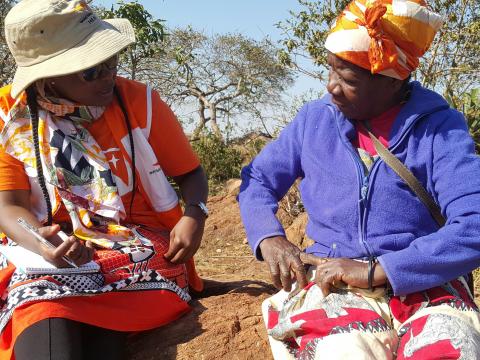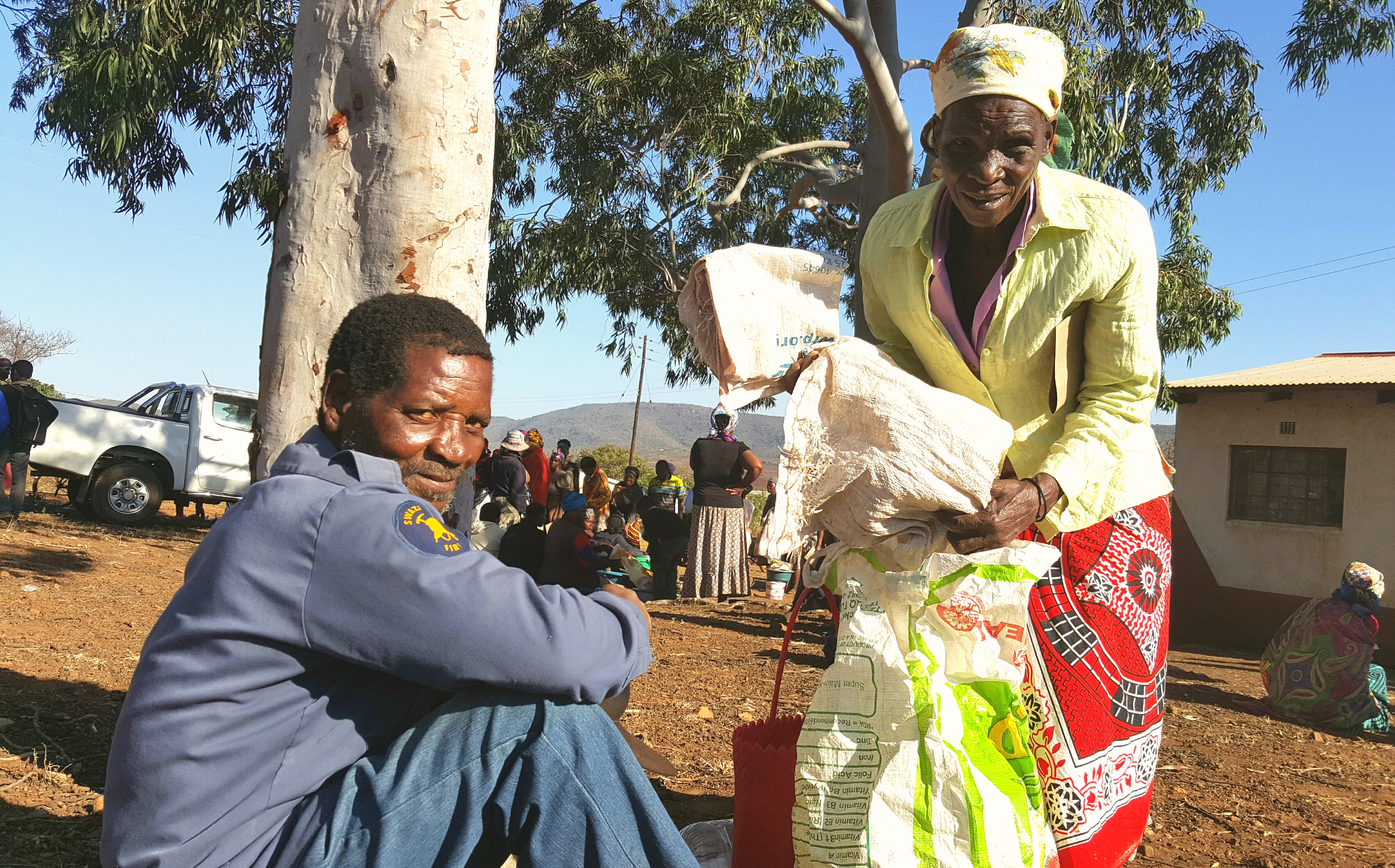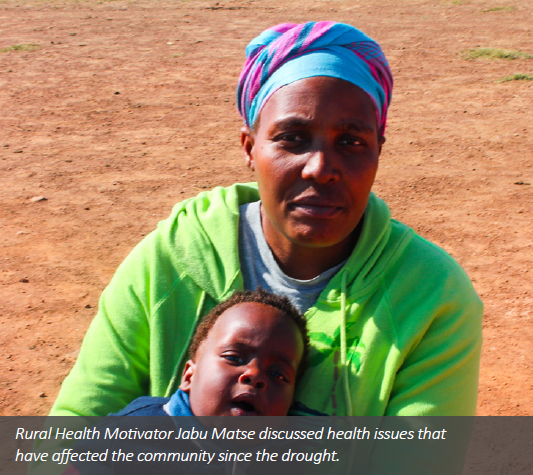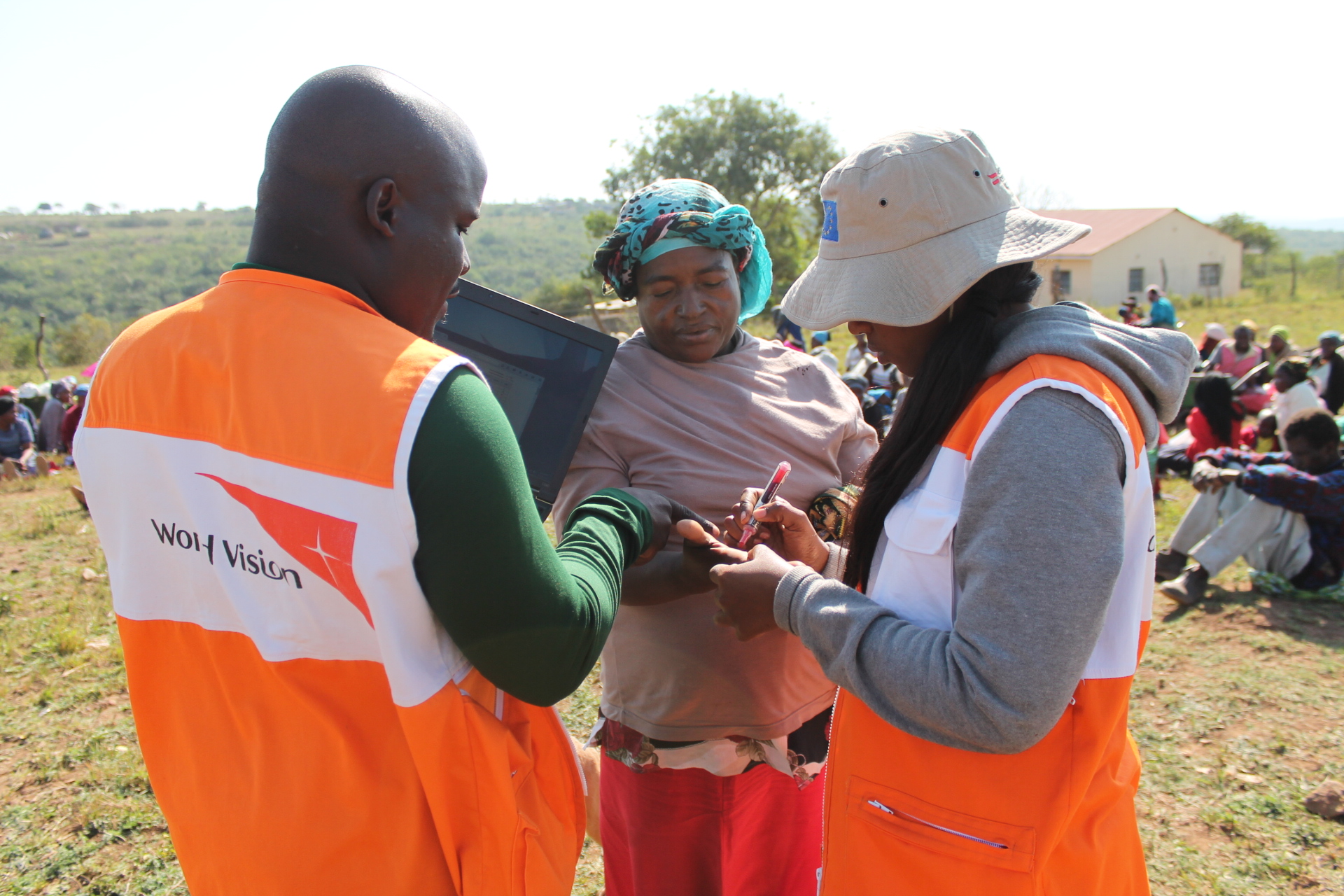Survival of the fittest

‘Life here is very hard, it’s a struggle and now it’s about survival of the fittest, as some days we go without food,’ explained Mbuya Sifundza, an Inner Council Representative from Tingene community.
He said that before the drought they had a plentiful harvest with mostly sweet potatoes, peanuts and mealies that they would sell to other constituencies. ‘Now we can’t plant anything because there is no water. We have boreholes but they are also drying up like that one by Shewula Primary School. We have also experienced looting and house break-ins and most times people steal food,’ he said. Mbuya also shared that a 20 kg (ligogogo) of mealies now costs approximately up to E150, or US $10.50. For the most vulnerable, this is unaffordable.
Mcitseki, a disabled 71 year old, receives food with the support of his wife
No food, medicine or milk
Jabu Matse, a 34 year-old Rural Health Motivator (RHM) from Hhwahhwalala, described life as difficult especially for the community members who are taking anti-retro viral drugs and those who are breastfeeding. Many complain they cannot take medication on empty stomachs and when they attempt to, they vomit and complain of complications. ‘We are having it hard as RHMs and we sometimes come together to share at least a cup of mealie meal and water with the people just so they can take their medication and most times they come back again for more,’ explained Jabu. Breastfeeding women cannot produce enough milk for their children; this has led to intergenerational malnutrition.
To survive, many are scouring the fields for scraps. Recently, the situation has deteriorated to the point where people are using unhygienic well water that has previously caused diarrhoea.
‘We teach people to boil water or add a lid of jik (bleach) in a 25 litres bucket and use it the next day but they don’t do it. I suppose it’s because they get the water from far and come back too tired to do any precautions,’ she said. Jabu also alleged that they have buried a few old women who had died of hunger. The elderly who suffer the most are widows and those without children.
Brought back to life
Mbuya Sifundza expressed sincere appreciation for the food aid saying, ‘Already we feel a kind of relief and hopefully if it continues we will be able to live and sustain ourselves in this situation.’ The same sentiments were echoed by Jabu Matse who was initially speechless at the sight of the food and said that World Vision has brought life back to them.
Women offload WFP donated bags of mealie meal for distribution
World Vision Swaziland is providing food aid to the drought-ravaged Lomahasha constituency where 8,896 beneficiaries will receive food baskets from July until October 2016. The National Disaster Management Agency requested World Vision distribute food to Lomahasha constituency, which consists of 35 communities with 13 distribution points, including Chiefdoms Mafucula, Tsambokhulu, Shewula and Lomahasha. Food has been donated by the World Food Programme (WFP) and each beneficiary receives a ration of 10kg mealies, 2.25 kg green peas/lentils and 0.9 litres vegetable oil.
World Vision’s Response Manager Thomas Okollah said, ‘Whilst the WFP funding will ensure sure availability of food till October, we are still fundraising so as to continue assisting the population until the next harvest season.’
World Vision's response team coordinates the distribution in Lomahasha
‘I am so happy and speechless. Today we will cook and our pots will work again especially in homes where there was absolutely nothing. We are grateful to World Vision and her partners, we ask that you do not get tired,' said an elated Jabu.



